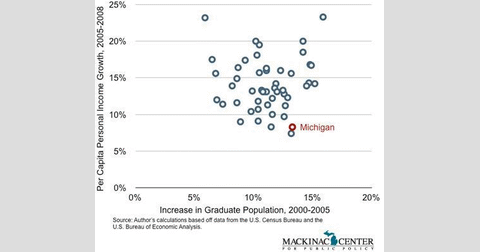Detroit Police Union Official Says Recent Cuts Make Streets Unsafe, But Police and Fire Department Salaries Increased
Other Detroit city workers took cuts
Detroit Police Officer Association Attorney Donato Iorio made national news recently when he said it wasn’t safe to enter the city due to staffing reductions in the police department. He said officers can’t afford to stay in Detroit and are leaving due to low pay.
However, city of Detroit financial records show that costs for the Detroit police and firefighter departments are mounting at a time all other departments are cutting costs.
Lorio disputes the city’s financial report, saying the city's top police officers make a base pay of $47,000 and haven’t received any benefit or wage increases since 2008.
Yet according to city documents, police and fire department employees saw their salaries and wages increase by $13.3 million between 2010 and 2011. The city had an overall net decrease in salary and wages of $15.3 million for the rest of its employees for the same period, according the the city of Detroit's 2011 Comprehensive Annual Financial Report.
The police and fire increases in gross salaries came despite a 2.5 percent drop in full-time employees in the "Public Protection" department, which includes police and fire. The number of full-time equivalent employees in Public Protection dropped from 4,643 in 2010 to 4,525 in 2011.
Pension costs for police and fire union employees jumped $60.4 million in 2011 compared to the previous year, according to city documents. The increase was mainly due to higher contribution rates by the city due to poor market performance of pension fund assets, the report said.
The city’s report on overall salaries and wages includes overtime. Police and fire departments traditionally have triggered large amounts of overtime during staff reductions, although it is unclear if that is what happened in Detroit.
Lorio said the city of Detroit poorly documents overtime so it is difficult to analyze if that was the case for the increase.
"We have officers who in order to make ends meet have to collect pop bottles," Iorio said. "It's shameful."
Mayor Dave Bing’s Spokesman Anthony Neely didn’t reply to requests for comment.
Michigan Capitol Confidential is the news source produced by the Mackinac Center for Public Policy. Michigan Capitol Confidential reports with a free-market news perspective.


 Caregivers protest union effort to skim home helpers’ pay
Caregivers protest union effort to skim home helpers’ pay
 Michigan firefighters dumped 3,000 gallons of water on burning Tesla
Michigan firefighters dumped 3,000 gallons of water on burning Tesla
 Ann Arbor firefighter wins appeal, receives unemployment benefits
Ann Arbor firefighter wins appeal, receives unemployment benefits

 Michigan manages to lose students while hiking higher ed spending
Michigan manages to lose students while hiking higher ed spending
 Whitmer: Taxpayers should fund community college for all
Whitmer: Taxpayers should fund community college for all
 Michigan House bill would allow college athletes to unionize, at an unknown cost
Michigan House bill would allow college athletes to unionize, at an unknown cost